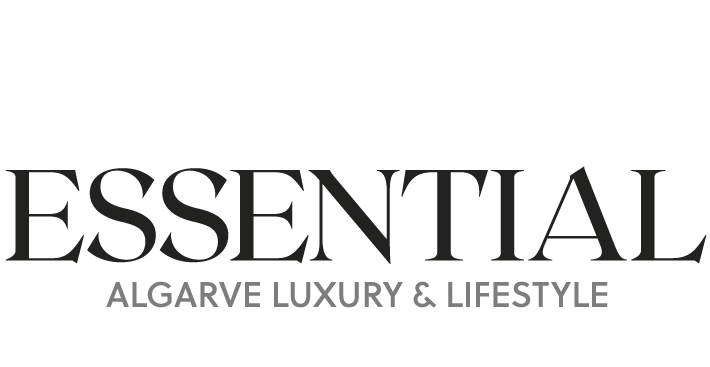Reviving the Algarve’s golden tradition of palm weaving
Maria João Gomes first learned the basic notions of palm weaving over 40 years ago with her grandmother, in the Algarvian hills. At the time, it was a rich industry in the region, but nowadays there are only a few who still know the techniques for weaving palm leaves.

With the goal of promoting “this art form”, as she describes it, the designer opened her studio at Museu do Traje (Costume Museum) in São Brás de Alportel, and founded the Palmas Douradas brand in 2015. Since then, she has been producing, on a daily basis, unique and sustainable handmade items that are also true works of art.

“I’m a craftswoman, a designer and an artist, because there are many pieces that do not come to me from drawings. Palm weaving is my form of expression, and its essence lies in the Algarve soul. I don’t compare myself to the big industries. I know that my work is different and that the products I create have great value,” she assures.

Hats with eccentric or small brims, bags with fringes, necklaces, decorative items, lampshades and mandalas that can go up to three metres in diameter… There is a lot to choose from, but they are all “flashy, unique, different and unconventional, even if they are not all very functional”, she says.
What they have in common is the raw material, the palm leaves, which, for Maria João, have to be Algarvian, more specifically from the Chamaerops humilis, Europe’s indigenous palm tree. And she herself chooses each leaf, one by one. “I like their individual character, particularly the spotted ones, because they create unique items that you cannot find anywhere else. The very process of selection is important to me. Whilst doing it, I’m already coming up with ideas for new pieces,” she reveals.

According to Maria João, her pieces “can last a lifetime”, even the hats. “I have a rug in my room that is 12 years old and is in excellent condition. However, a rug for a hotel lobby, which some businesses have already tried to order from me, to be used by 500 people every day, doesn’t work. Most of the items I produce are not utilitarian, they are fashionable or decorative, for low use, so that they can last a lifetime. For example, my hats can be worn all year round. I’m working on my winter collection right now. Even if the hats get wet, just let them dry,” she says.

And what is her main inspiration? “It’s global. I’m inspired by the colours and landscapes of the Algarve, but I like to follow fashion trends, top designers and models. I’m constantly looking at what already exists and what has not been done yet. And I really like looking at weaving works from Mexico and Ecuador,” she reveals.
In 2016, not long after the launch of Palmas Douradas, she had her first partnership with fashion designer Filipe Faísca for ModaLisboa. A number of Maria João’s bags and hats were featured at the show for his “Retroespectiva” collection. More recently, in 2020, the brand returned to the catwalks, this time with fashion designer Maria Gambina for Portugal Fashion.

But the biggest turning point for Maria João Gomes came in 2018, when she worked with the famous French maison Christian Louboutin. “They came to the studio, chose around 40 pieces, asked me to create a new style of weaving and I even had the chance to work with them in Paris,” she recalls. It was precisely within the scope of this partnership that her spiral technique, later patented, came about. Maria João is the only professional allowed to use it and sell it in Europe.
“I’m very successful out there, in the world of haute couture,” she admits. Proof of this is that former Chanel model Inès de La Fressange wore a Palmas Douradas hat in a photoshoot and later bought it. The pieces she creates in the Algarvian hills are already making their way around the world, with orders being sent to haute couture houses in Germany, Korea and France. “I ship them all over Europe, and I have foreign clients who come to my studio to choose various items when they are on holiday in the Algarve. In the last two years for example, I have noticed a huge demand from the American market. I also have pieces on sale in Lisbon, at Portfolio, and in French and German stores,” she says.
As for prices, hats cost an average of €130, with the most expensive and most elaborate models costing €600. Small decorative items start at €40, and bags start at €140.
Follow Palmas Douradas on Instagram or Facebook.
Read more:
Presuntaria do Mercado is the a new hotspot in Portimão for cured ham lovers
Algarve welcomes the final Tournament of the European Disabled Golf Association this November
Essential delves into the life story of the late Paula Rego, one of Portugal’s biggest artists







NO COMMENT